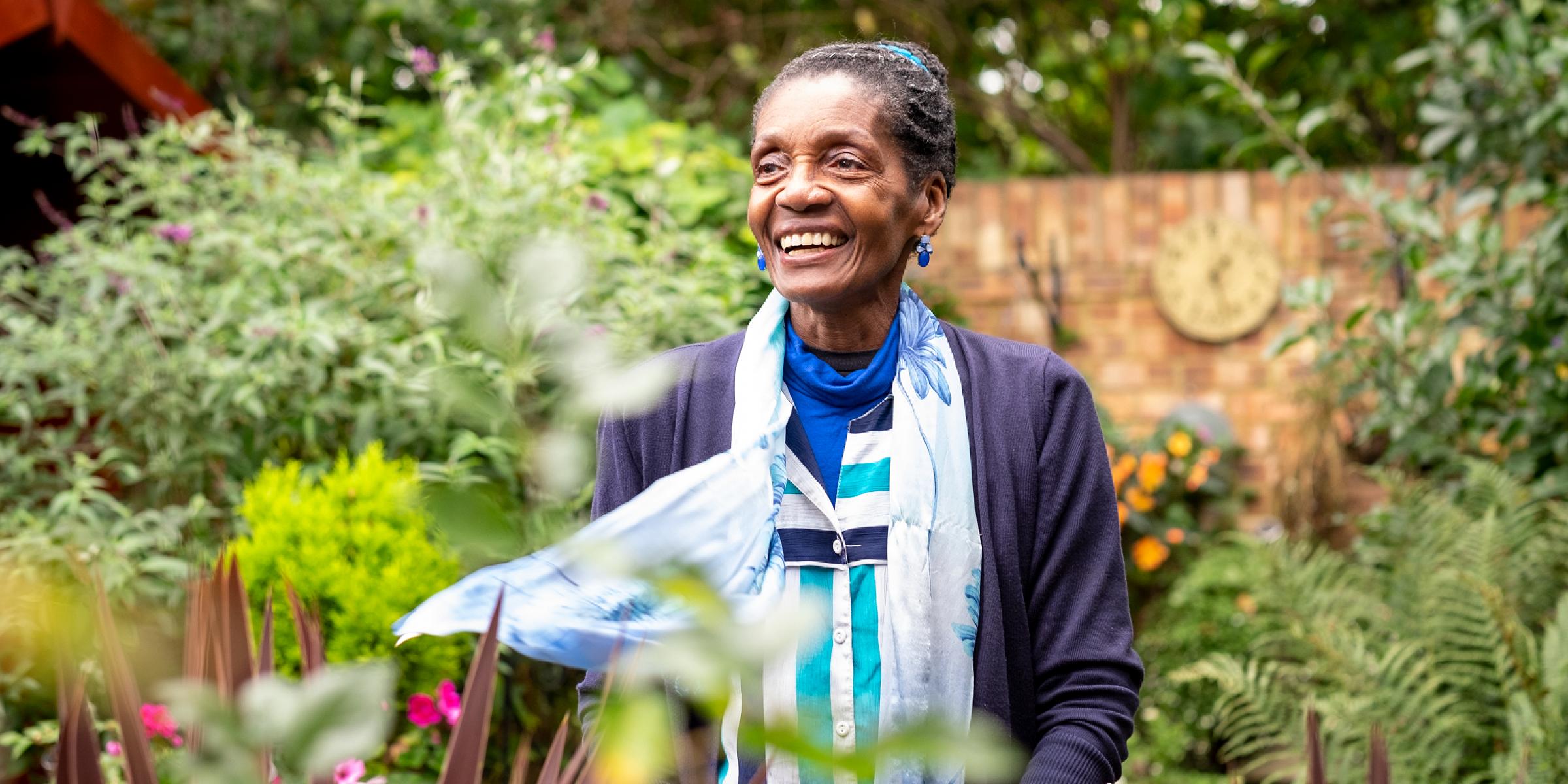
Addressing big issues that Black people with dementia in the UK face
Community leader Morcea Walker talks to us about the specific challenges of dementia in the Black community and her passion for raising awareness.
If I get dementia, I’m going to go back in time to the days I spent with my grandmother in Jamaica, because it’s where I want to be.
I will remember the smells of jasmine and coconut, and watching the sea to see the ships come in, and going with my grandfather to meet the ships.
My children won’t know what I’m talking about.
It’s likely my carers won’t know what I’m talking about.
That’s the way it is for many Black people in the UK who live with dementia.
As time rolls back, they are back in the Caribbean, in their houses, growing vegetables, going to the market, and cooking. Caribbean life is in the kitchen, always a pot of soup simmering on the stove. Those are our memories.
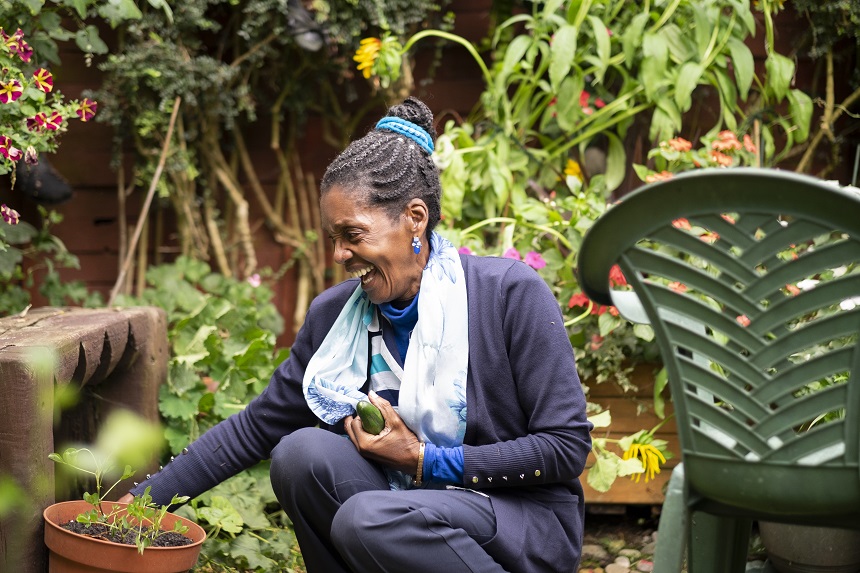
Challenges faced by Black people with dementia
At this stage it is mostly first-generation immigrants from the Caribbean who are developing dementia, and it is hard for people to understand.
Our children don’t understand. And there is a very great need for more understanding of dementia in the Black community.
Some of the challenges Black people with dementia face are the same as those of white people and other groups, but they also have another layer that leads to different experiences.
Part of it is about infrastructure – day centres and community groups and care homes that understand our experience – but it’s also about how our community views and understands dementia.
Culturally it has been very hard to accept dementia and some beliefs have come out of the African culture.
Sometimes people say that dementia is caused by a great sin that has been committed by someone in the family many decades ago and that dementia is a punishment; God’s way of saying that you haven’t done things right. They put a faith label on it to the point that they believe that praying will heal it. So people don’t go to the doctor. But some places of worship do try to encourage their congregation to both pray and seek help and understanding.
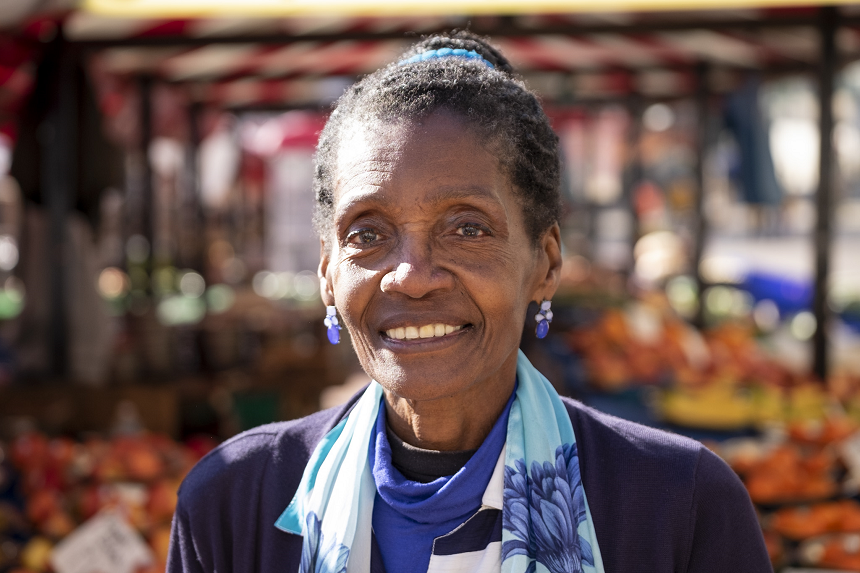
In a place with a large Black community, it may be easier for a person with dementia to go to the market – because that is a big part of life – or to get the food they love. There may be groups for older people, churches, community groups. If you don’t live in one of those areas, it is very isolating.
There are some small changes people can make, but also some bigger issues that we need to address.
A lot of Black people don’t like the word ‘carer’ so I say to people, try using ‘helpers.’ Say ‘There’s a helper coming to the house.’ There are simple things about terminology that can make a person feel safe.
There are not enough Black care workers, we have to accept that, so it’s a training issue for all carers. It’s that ability to be proud of the heritage that they have and not to be ashamed of it that is so important to a person with dementia interacting with their carers.
The importance of reminiscence
Reminiscence is important, and you need to have people who understand.
You need to be able to talk about going to the market to get your goat meat, and about cooking, about food.
You need to look at pictures of those houses full of crochet blankets, those houses where you go in and there is a front room and a back room and remember how the front room was saved for special visitors and you lived in the back room. Those pockets of houses with verandas and palm trees.
We ask people who are going to the Caribbean to bring back pictures so that we can have reminiscence groups, where people see what they were familiar with in their childhood.
One of the main things to me is music, a steel band. Music is very much part of my life, it’s part of Caribbean life. How can I forget the music that comes in all styles and the instruments that go with that theme such as the steel pans or drums?
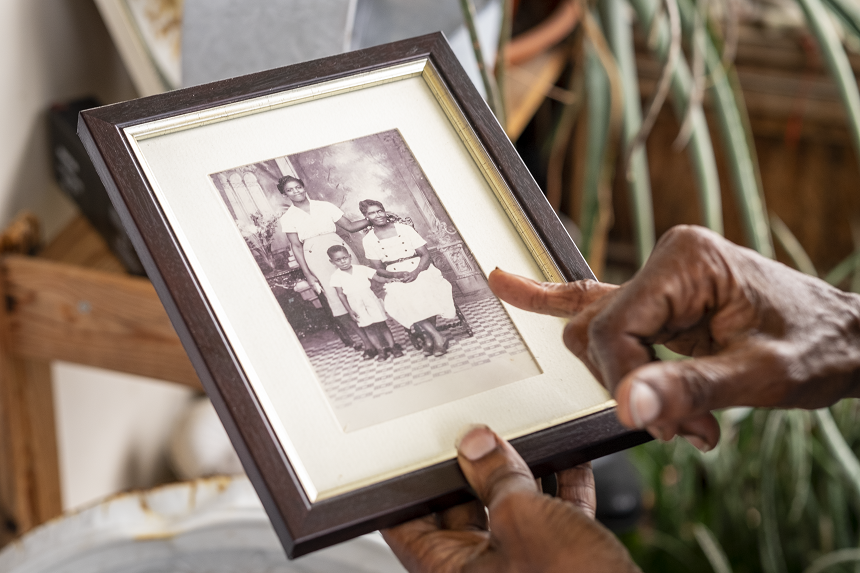
Barbers and hairdressers need to be trained to understand dementia, to talk to their clients because that would have been a big part of their life, to go to the barber or the hairdresser.
In the later stages for families it’s a real hunt to find a care home that both caters for people with dementia and can accommodate Black people, that understands the culture.
We are making a difference.
I am involved in the Northampton Carnival, which is for the whole community, and Alzheimer’s Society came and gave out leaflets. I later found out that a Pastor from a church picked up those leaflets and in the church they talked about dementia. A doctor in the service came to him and said he had observed that two people in the congregation showed signs of dementia, and they were able to help them.
Morcea's message for Black communities
My main message is dementia is in our society and what we need to do is to get a good understanding.
As a community we need to embrace it, we need to understand it and work with it.
We need to give ourselves the space to say ‘it’s there, how do we work with it? Who do we need to challenge? Who do we need to go to say ‘Help me, I need support’?’
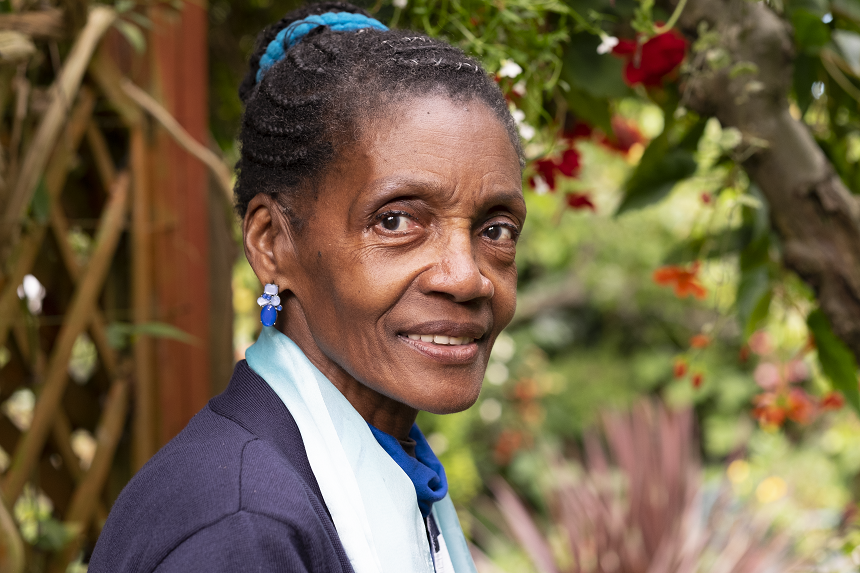
We need to have good things in place. We need two or three ambassadors who will travel with the family through the journey.
If you have concerns about your memory, visit your doctor, develop a good relationship, and contact Alzheimer’s Society. It’s a good organisation and they will only know how to get better with your involvement.
It’s important to me that we raise awareness of dementia in the Black community so that people can get the help they need. If two people benefit from the work we do – like those two people in church – then that’s making a difference.
Need dementia support? If you or someone you know are worried about or affected by dementia, Alzheimer's Society is here for you.
Share your story
Would you like to write a blog post? We are always looking for new blog storytellers to share their personal experiences, particularly people affected by dementia from Black, Asian and minority ethnic communities. We'd love to hear from you.






Peter Middleton
saysThanks for your interesting and thought-provoking Blog Morcea.
I wonder when we will find the key to unlock some of our more closed communities?
I fear sometimes that the "one size fits all" approach we so often use to dementia services simply doesn't resonate with those whose culture and and reminiscences take them back to places, sights and sounds outside of the United Kingdom.
We need to do better.
Marla Lewis
saysMy Dad has not been back to the Caribbean in over 20 years, but now with dementia his memories of his younger years there are very strong. We have some afro caribbean carers and it does help a lot the link with culture and food 'back home'. Also when he had a spell in respite care they played some calypso music for him. It all helps!
Hi Marla,
Thanks for your comment, and sorry to hear about your dad's diagnosis.
If you ever need dementia support, we're here for you. You can call our Dementia Connect support line on 0333 150 3456. More details of the support line (including opening hours) can be found here: https://www.alzheimers.org.uk/dementia-connect-support-line
We'd also love to hear more about your experiences with your dad. If you ever want to share your story on our blog, please email us at [email protected]
Many thanks,
Alzheimer's Society blog team